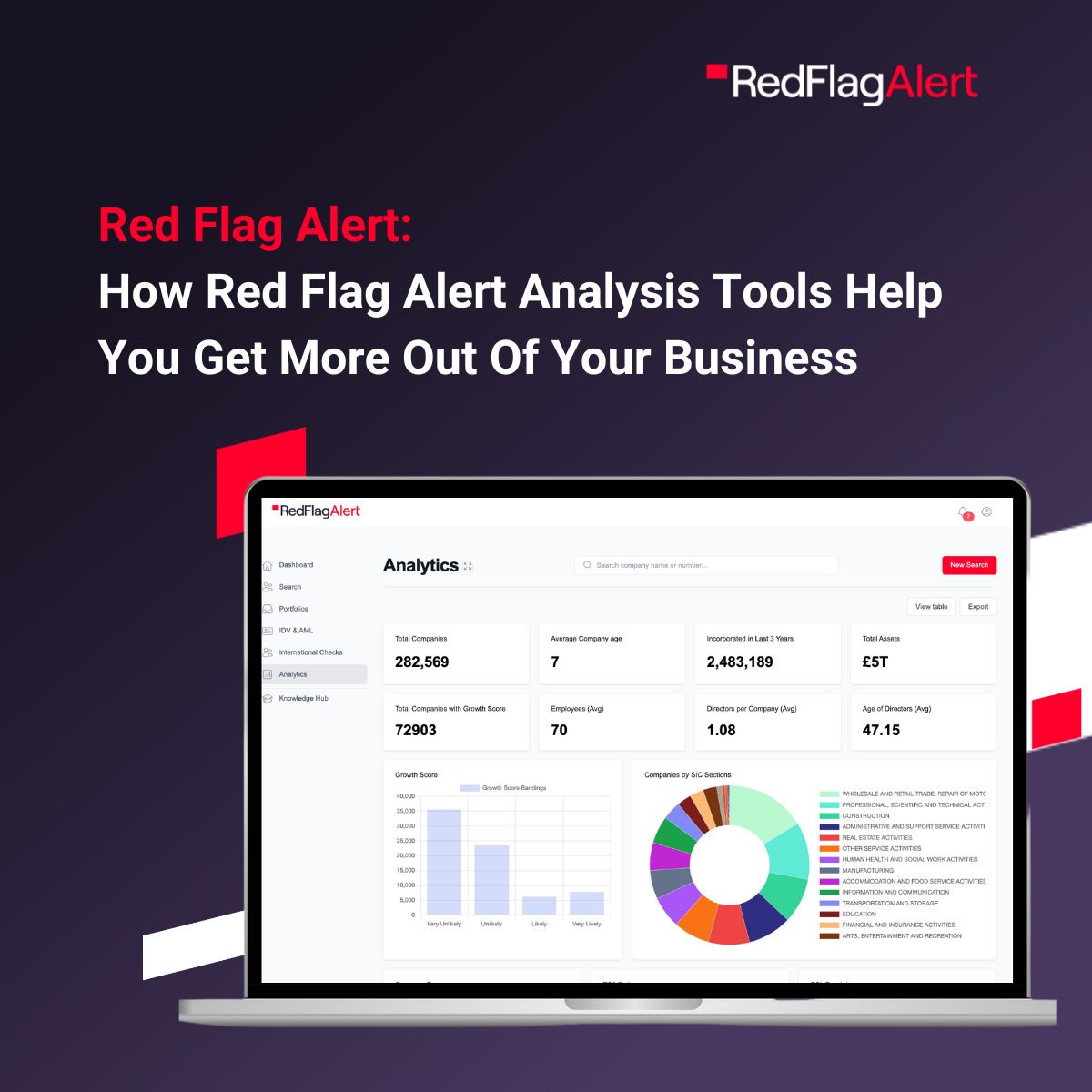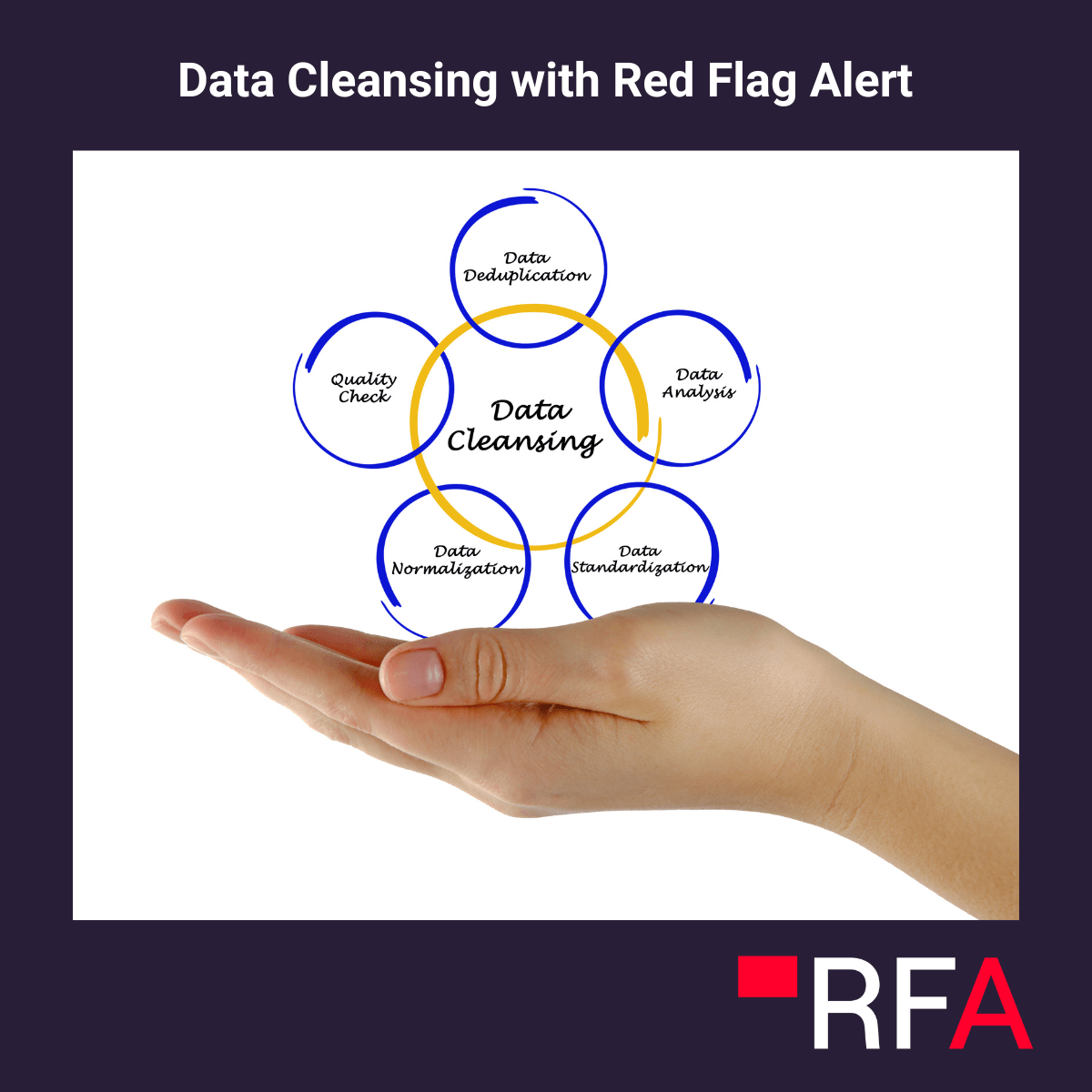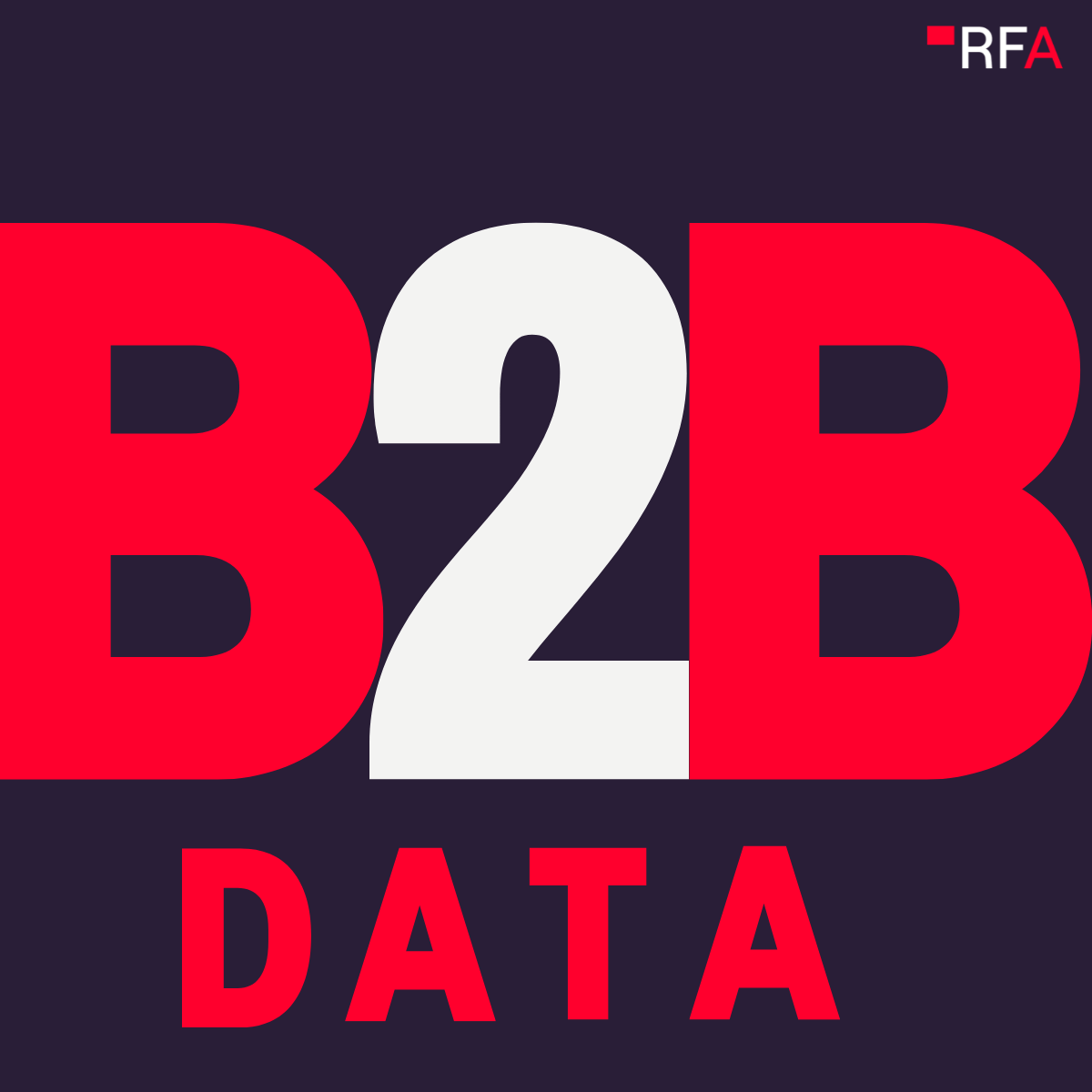Strategy and key business decisions should be based on facts and evidence. As such, success is often synonymous with the ability to leverage data effectively.
For those well-versed in the intricacies of business, the impact of data-driven decision-making cannot be overstated. For B2B sales strategies, B2B data analysis can be transformed into profits and growth, turning data into a game-changer for many
Discover how the dynamic world of data-driven sales strategies sheds light on how businesses can turn raw data and insights into tangible revenue.
The Foundation of Data-Driven Sales
Data-driven sales, in essence, involves the use of data and analytics to guide sales activities, optimise processes, and ultimately boost revenue. Red Flag Alert has broken down the basics to illustrate how powerful this process can prove to be:
Comprehensive Sales Data Analysis
The cornerstone of data-driven sales strategies lies in comprehensive data analysis. It's not just about collecting data, it's about extracting meaningful insights. This means diving deep into sales data, customer behavior, and market trends. Identifying patterns and correlations can unveil opportunities for growth and highlight areas for improvement.
Customer-Centric Approach
Businesses can aso adopt a more customer-centric approach to sales, with the data shedding light on customer preferences, pain points, and purchasing behaviour, allowing for personalised interactions. This tailored approach builds stronger relationships and enhances the likelihood of closing deals. Utilising data to create buyer personas can be a game-changer in this regard.
Predictive Analytics for Sales Forecasting
Sales forecasting is a fundamental part of business, but it can be improved. Integrating predictive analytics into the process gives organisations the power to analyse historical data and current market trends. This enables businesses to make accurate predictions about future sales performance, giving them the foresight needed for proactive decision-making and better resource allocation.
Implementing Data-Driven Strategies
With the foundations laid for confident data-driven sales strategies, the finer details behind the process can be explored. For businesses, it is paramount that all elements are assessed in detail to ensure complete optimisation of the business data.
CRM Integration
Integrating Customer Relationship Management (CRM) systems with robust analytics tools is a logical step. A well-integrated CRM can provide a 360-degree view of customer interactions, enabling sales teams to make data-backed decisions, streamlining the sales process and ensuring each interaction is informed by relevant data.
Real-Time Data for Agile Decision-Making
In the dynamic world of business, agility is key. For professionals well-versed in B2B sales strategies, incorporating real-time data into decision-making processes enhances agility. Whether it's adjusting pricing strategies based on market fluctuations or tweaking sales approaches based on immediate customer feedback, real-time data ensures that businesses stay ahead of the curve.
AI-Powered Sales Analytics
AI can analyse vast datasets at unparalleled speeds, uncovering hidden patterns and correlations more efficiently than any human. By leveraging AI-powered insights, businesses can make data-driven sales decisions with a level of sophistication that is hard to replicate.
Turn Data into Strategy - A Step-by-Step Breakdown
Business data is a valuable asset for any organisation, but more than simply collecting data is required. To truly leverage the value of business data, it’s essential to turn that data into actionable insights and strategies that can inform decision-making and drive business growth.
Here are some steps that organisations can take to turn business data into effective strategies…
Identify key performance indicators (KPIs)
The first step in turning business data into strategy is identifying the most critical metrics for the business. Depending on the goals already outlined, this might include customer acquisition, retention, revenue, profitability, or efficiency metrics.
Collect and clean data
Once critical KPIs have been pinpointed, the next step is to collect and clean the data used to track and measure those metrics. This can involve gathering data from various sources, such as sales records, marketing campaigns, customer interactions, or market research. It’s also essential to ensure that the data is accurate and consistent.
Analyse and visualise data
Businesses can now begin analysing and visualising the data in a way that makes it easy to understand and interpret. This might involve creating dashboards or reports highlighting key trends and patterns or using data visualisation tools to explore the data in more detail.
Turn data into insights
The next step is to turn the data into actionable insights that can inform business strategies. This might involve identifying areas for improvement, opportunities for growth, or developing recommendations for optimising business processes.
Involve key stakeholders
When developing strategies based on business data, it’s essential to involve key stakeholders. This might include members of the leadership team, sales and marketing teams, and other departments that the strategies will impact. By applying these stakeholders, businesses can ensure that methods align with their needs and goals.
Use various data sources
Using multiple data sources is fundamental to gaining a complete and accurate picture. This might include internal data sources, such as sales records and customer interactions, and external data sources, such as market research or industry benchmarks. Using various data sources, companies can get a more holistic view of their business and identify opportunities for improvement.
Use data to inform decisions
The ultimate goal of turning business data into strategy is to inform decision-making and drive business growth. To do this, it’s essential to use data to inform the development of actionable strategies rather than simply reacting to data after the fact.
Implement and monitor
Implementing the developed strategies based on the data insights is the final step before tracking their progress over time and track their progress over time. This can involve setting up systems to monitor key metrics, such as revenue or customer satisfaction, and adjusting the strategies based on the results.
Use Red Flag Alert’s Unparalleled Business Data Insights and Automation
In the fast-paced realm of business development and strategy, Red Flag Alert emerges as the ultimate tool to propel your growth journey.
Our extensive database, rich with business intelligence on over 15 million UK companies, provides a comprehensive suite of solutions designed to elevate your business to new heights.
Our data goes beyond the basics, offering detailed insights into a company's operations and financial health. From financial data and size to sector and location, our database has industry-leading depth, with insights including company structure, growth details, director information, and more. This nuanced understanding empowers your decision-making process, allowing you to make informed choices with confidence.
It's not just about data; it's about actionable insights that drive your business forward.
You can even benefit from seamlessly integrating our platform with your CRM. This integration empowers your sales and marketing teams with enriched data, enabling them to work more efficiently and productively.
Red Flag Alert isn't just a standalone solution - it seamlessly becomes a part of your existing workflow, enhancing your capabilities and multiplying your strategic advantage.
Get a free trial today and gain access to our platform, along with our Prospector tools. Discover the power of company search and build targeted lists, with ongoing support for any queries during the trial period.




